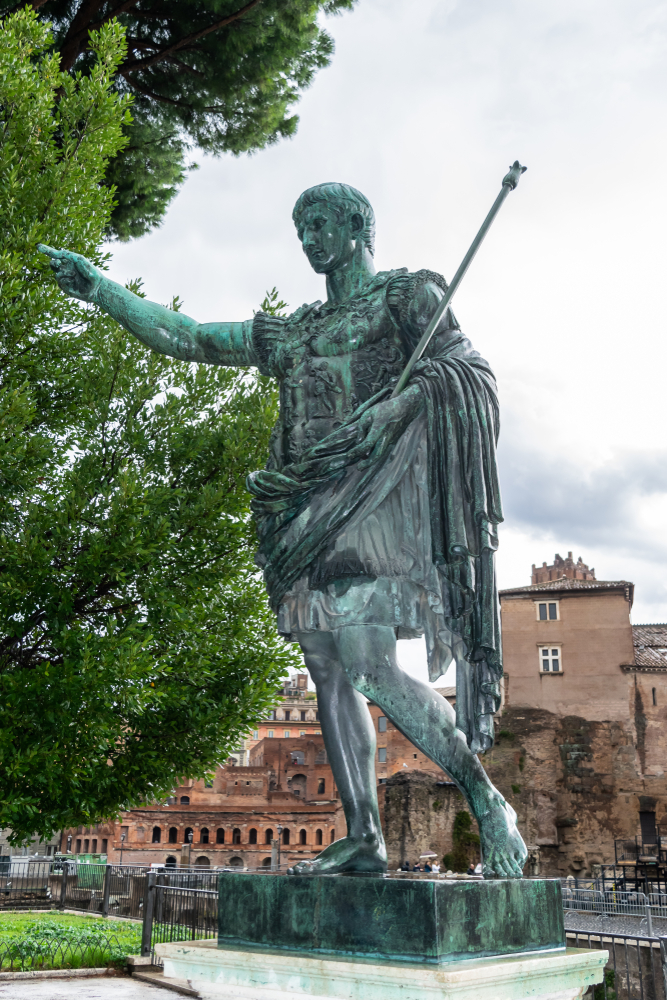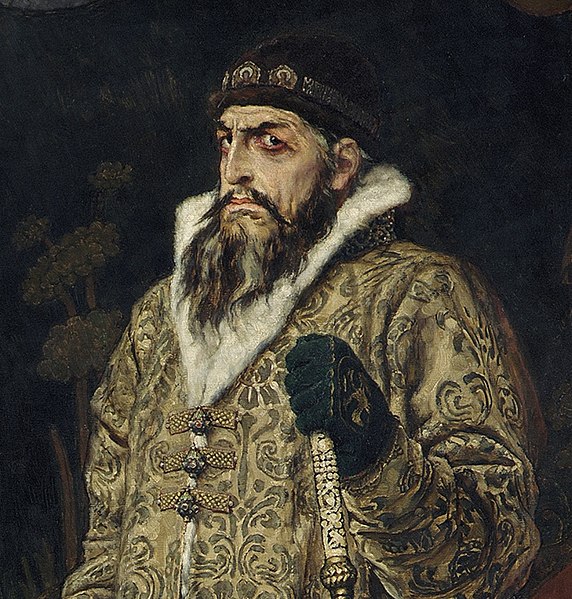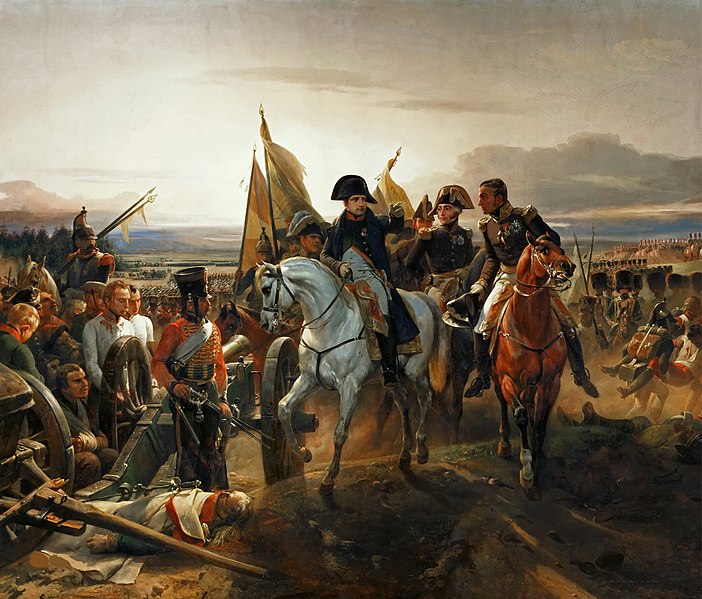This article explores some of the most pivotal events that occurred on January 16th, spanning from the establishment of the Roman Empire in 27 BC to significant moments in modern history, such as the impeachment trial of a U.S. President in 2020.
Each event showcases the evolution of global politics, scientific discovery, cultural shifts, and the human quest for progress and justice.
Presented chronologically, these moments offer a glimpse into the rich tapestry of human history, highlighting how past events continue to influence the present and future.
January 16th Events in History
27 BC – The Roman Senate grants Gaius Julius Caesar Octavianus the title of Augustus, marking the beginning of the Roman Empire
This event marked the end of the Roman Republic and the beginning of the Roman Empire. Gaius Julius Caesar Octavianus, known as Octavian, was Julius Caesar’s adopted son and heir.
After Caesar’s assassination in 44 BC, Octavian emerged victorious in a power struggle that followed, defeating Mark Antony and Cleopatra at the Battle of Actium in 31 BC.
Also Read: January 15 – On this Day in History
On January 16, 27 BC, the Roman Senate conferred upon him the title of Augustus, meaning “the revered one.” This event is considered the beginning of the Roman Empire, which lasted until the fall of the Western Roman Empire in 476 AD.

550 – Gothic War: The Ostrogoths, under King Totila, conquer Rome after a long siege
During the Gothic War, which was part of the series of conflicts between the Byzantine Empire and the Ostrogoths in Italy, King Totila managed to breach Rome’s defenses after a prolonged siege.
Also Read: January 17th Events in History
His victory was significant, as Rome was the symbolic heart of the ancient Roman Empire, and its capture demonstrated the power and reach of the Ostrogothic Kingdom at that time. Totila’s rule over Rome, however, was not to last long, as the Byzantines eventually recaptured the city.
929 – Emir Abd-ar-Rahman III establishes the Caliphate of Córdoba
Abd-ar-Rahman III was a member of the Umayyad dynasty and ruled as the Emir of Córdoba in al-Andalus (present-day Spain and Portugal). In 929, seeking to consolidate his power and elevate the status of his realm, he declared himself Caliph, thereby establishing the Caliphate of Córdoba.
This act not only challenged the Abbasid Caliphate in Baghdad but also transformed al-Andalus into a significant political and cultural power in the medieval world. The Caliphate of Córdoba is remembered for its contributions to art, science, and philosophy.
1547 – Ivan IV of Russia a.k.a. Ivan the Terrible becomes Czar of Russia
Ivan IV, known as Ivan the Terrible, became the first tsar of all Russia in 1547, establishing a centralized government and expanding Russian territories. His reign is marked by significant reforms in law, church affairs, and military conquests.
However, his rule became increasingly tyrannical, and his later years were marred by intense paranoia, violence, and the Oprichnina, a period of state-sponsored terror against the nobility. Despite his notorious reputation, Ivan IV’s reign significantly shaped Russian governance and territorial ambitions.

1581 – The English Parliament outlaws Roman Catholicism
In 1581, amid escalating religious tensions between Protestant England and Catholic powers in Europe, the English Parliament passed laws severely penalizing the practice of Roman Catholicism.
This was part of a series of legislative efforts under Queen Elizabeth I to establish the Church of England’s supremacy and eliminate Catholic influence within the kingdom.
These laws included heavy fines for attending Mass and harsh penalties for those who refused to attend Anglican services, effectively criminalizing the practice of Roman Catholicism in England.
1707 – The Scottish Parliament ratifies the Act of Union, paving the way for the creation of Great Britain
The Act of Union 1707 was a pivotal legal agreement that resulted in the political union of the Kingdom of Scotland and the Kingdom of England (which included Wales) to form the Kingdom of Great Britain.
This union was ratified by the Scottish Parliament on January 16, 1707, following its ratification by the English Parliament in 1706. The agreement came into effect on May 1, 1707.
The union was motivated by political, economic, and security reasons, including the desire to stabilize relations between the two countries, gain economic advantages through shared markets, and counteract France’s power in Europe.
The Act of Union led to a single parliament at Westminster, London, and had profound effects on the development of British identity and global influence.
1759 – The British Museum opens to the public in London
Founded in 1753 by the bequest of the physician and scientist Sir Hans Sloane, the British Museum opened its doors to the public on January 15, 1759. It was the first national public museum in the world, granting free admission to all ‘studious and curious persons’.
The museum’s collection, which has grown substantially over the centuries, initially comprised books, manuscripts, natural specimens, and various antiquities. Today, it houses a vast and comprehensive collection of art and artifacts from around the world, documenting the story of human culture from its beginnings to the present.
1777 – Vermont declares its independence from New York
On January 15, 1777, representatives from various towns in what is now Vermont declared the region independent, naming it the New Connecticut Republic. Later, in June of the same year, it was renamed the Republic of Vermont.
This declaration was partially in response to territorial disputes with New York, which claimed the area. Vermont’s independence also reflected the inhabitants’ desire for self-governance, distinct from British colonial rule and New York’s jurisdiction.
Vermont functioned as an independent republic for 14 years, eventually becoming the 14th state of the United States in 1791.
1809 – Peninsular War: The British defeat the French at the Battle of La Coruña
The Battle of La Coruña took place in northwestern Spain during the Peninsular War, which was part of the wider Napoleonic Wars. On January 16, 1809, British forces, commanded by Sir John Moore, fought a rearguard action against the French, led by Marshal Soult, allowing the British to embark on their ships and evacuate to Britain.
Despite the British withdrawal from Spain, the battle is considered a strategic success for delaying French pursuits. Sadly, Sir John Moore was killed during the battle, and his leadership and sacrifice became widely commemorated.

1878 – The Silver Dollar becomes legal US tender
The Bland-Allison Act, passed by the United States Congress in 1878, reinstated the silver dollar as legal tender and required the U.S. Treasury to purchase a specified amount of silver to be coined into dollars each month.
This legislation was a compromise between those who advocated for the unlimited coinage of silver and those who supported a gold-only monetary standard.
The act was significant in the context of the “Free Silver” movement, which was part of a larger debate over monetary policy in the United States, particularly issues of inflation vs. deflation and the interests of different economic groups.
1909 – Ernest Shackleton’s expedition finds the magnetic South Pole
Sir Ernest Shackleton’s Nimrod Expedition (1907–1909) was a landmark in the annals of Antarctic exploration. On January 16, 1909, a party led by Edgeworth David, Douglas Mawson, and Alistair Mackay, part of Shackleton’s team, became the first to reach the vicinity of the magnetic South Pole.
They did not stand exactly at the pole but got within 16 kilometers (10 miles) of its estimated position at that time, planting the British flag to stake their claim. This achievement was part of the Heroic Age of Antarctic Exploration, demonstrating human endurance and the desire to explore unknown territories.
1920 – The League of Nations holds its first council meeting in Paris, France
The League of Nations, conceived as part of the Treaty of Versailles in 1919, was an international organization aimed at maintaining world peace and preventing future wars. Its first council meeting, held on January 16, 1920, marked the beginning of its efforts to create a new order based on diplomacy and collective security.
Although the League of Nations ultimately failed to prevent another world war, it established principles and procedures for international cooperation, serving as a precursor to the United Nations.
1945 – Adolf Hitler moves into his underground bunker, the Führerbunker
In the final months of World War II, as Allied forces closed in on Berlin, German dictator Adolf Hitler retreated to the Führerbunker, an air-raid shelter located near the Reich Chancellery in Berlin.
On January 16, 1945, Hitler moved into the bunker, where he would spend the last months of his life. The Führerbunker became the last headquarters of the Nazi regime, where Hitler made his final military decisions and, ultimately, took his own life in April 1945.
1964 – Hello, Dolly! opens on Broadway, beginning a run of 2,844 performances
“Hello, Dolly!” is a musical with lyrics and music by Jerry Herman and a book by Michael Stewart, based on Thornton Wilder’s 1938 farce “The Merchant of Yonkers,” which was revised and retitled “The Matchmaker” in 1955. The musical opened on January 16, 1964, at the St. James Theatre in New York City.
Starring Carol Channing in the title role, it became one of Broadway’s most enduring and beloved shows. “Hello, Dolly!” won 10 Tony Awards, including Best Musical, and its original Broadway production ran for 2,844 performances, making it one of the longest-running musicals at the time.

1969 – The Soviet Union launches Soyuz 4
Soyuz 4 was a manned space mission launched by the Soviet Union on January 14, 1969. Commanded by cosmonaut Vladimir Shatalov, the mission is notable for achieving the first-ever docking of two manned spacecraft in orbit, Soyuz 4 and Soyuz 5, on January 16, 1969.
This historic event demonstrated the feasibility of spacecraft rendezvous and docking, a critical capability for future space exploration missions, including the Apollo moon landings and the construction of space stations such as the International Space Station.
1979 – The Shah of Iran flees Iran with his family and relocates to Egypt
On January 16, 1979, Mohammad Reza Shah Pahlavi, the Shah of Iran, was forced to leave Iran amidst widespread protests and civil unrest that marked the climax of the Iranian Revolution.
Facing mounting opposition and declining health, the Shah sought refuge in Egypt, one of the few countries willing to offer him asylum at the time.
His departure paved the way for Ayatollah Ruhollah Khomeini’s return from exile and the establishment of the Islamic Republic, fundamentally changing the political, social, and cultural fabric of Iran.
1991 – The United States launches Operation Desert Storm against Iraq
Operation Desert Storm began on January 17, 1991, as part of the Gulf War, following Iraq’s invasion and annexation of Kuwait in August 1990. This military operation marked the combat phase of the Gulf War, initiated by a coalition force led by the United States against Iraq.
It featured an extensive aerial bombing campaign followed by a ground assault, resulting in the swift liberation of Kuwait. The operation showcased the potency of precision-guided munitions and marked a significant moment in modern warfare.
2001 – Congolese President Laurent-Désiré Kabila is assassinated by one of his own bodyguards
Laurent-Désiré Kabila, President of the Democratic Republic of the Congo (DRC), was assassinated on January 16, 2001, in Kinshasa. Kabila, who had come to power in 1997 by overthrowing long-time dictator Mobutu Sese Seko, faced numerous challenges during his presidency, including ongoing conflicts within the DRC.
His death led to his son, Joseph Kabila, succeeding him as president, marking the beginning of a new era in Congolese politics amidst the backdrop of the Second Congo War, one of Africa’s deadliest conflicts.
2003 – The Space Shuttle Columbia takes off for mission STS-107, which would be its final one due to a tragic accident
On January 16, 2003, the Space Shuttle Columbia launched on its 28th mission, designated STS-107. This scientific mission, carrying a crew of seven astronauts from various countries, was dedicated to a wide range of experiments.
Tragically, on February 1, 2003, Columbia disintegrated upon re-entry into the Earth’s atmosphere due to damage sustained to its thermal protection system during launch. All seven crew members were lost, leading to a reevaluation of the Space Shuttle program and its safety protocols.
2020 – The impeachment trial of United States President Donald Trump begins in the Senate
The impeachment trial of President Donald Trump commenced in the U.S. Senate on January 16, 2020. This was the third presidential impeachment trial in U.S. history and resulted from charges related to abuse of power and obstruction of Congress, which the House of Representatives had approved in December 2019.
The charges were connected to allegations that Trump had sought foreign interference in the 2020 U.S. presidential election. The Senate, however, acquitted President Trump of both charges on February 5, 2020, allowing him to remain in office until the end of his term.
